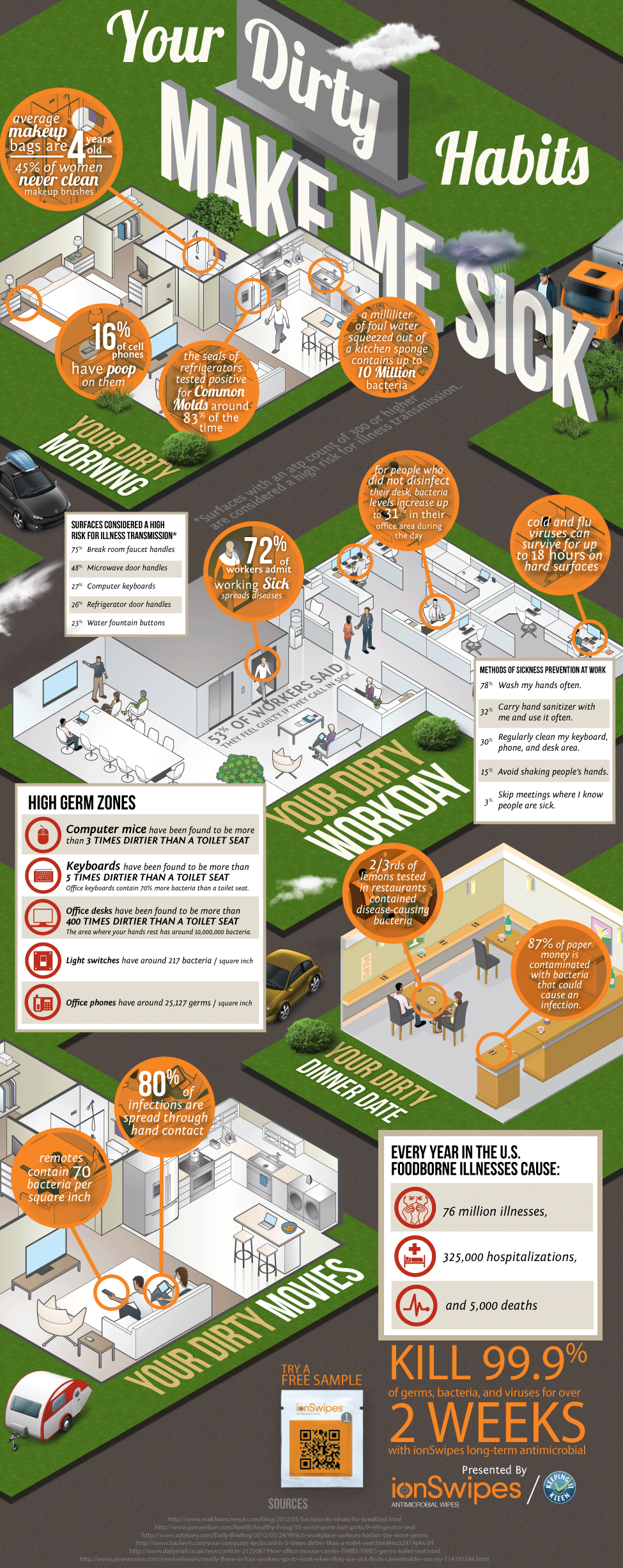Dirty Tech Habits Making You Sick
We all have our habits, but some of these dirty habits may come to a shock to you. Your Dirty Habits Make Me Sick infographic from ionSwipes educates the reader on how their morning routines and work day can be full of nasty habits that will get them sick.
The infographic titled "Your Dirty Habits" highlights the prevalence of germs and bacteria in everyday items and environments, emphasizing the importance of cleanliness to prevent illness.
Key Points:
Makeup Bags and Brushes:
45% of women never clean their makeup brushes.
Makeup bags are on average 3 years old.
Cell Phones and Household Appliances:
16% of cell phones have traces of fecal matter.
83% of refrigerator seals tested positive for common molds.
High-Risk Surfaces for Illness Transmission:
Break room faucet handles (75% risk).
Microwave door handles (48% risk).
Computer keyboards (27% risk), refrigerator door handles (26%), and water fountain buttons (23%).
Kitchen Sponges:
A milliliter of water from a kitchen sponge can contain up to 10 million bacteria.
Workplace Germs:
72% of workers admit to working while sick, spreading diseases.
Without desk disinfection, bacteria levels can increase by 31%.
Cold and flu viruses can survive up to 18 hours on hard surfaces.
High germ zones include computer mice (3x dirtier than a toilet seat), keyboards (5x dirtier), and office desks (400x dirtier).
Sickness Prevention at Work:
Methods include frequent hand washing (78%), using hand sanitizer (32%), cleaning keyboards, phones, and desks (30%), avoiding handshakes (15%), and skipping meetings with sick individuals (30%).
Other Germy Items:
2/3 of lemons in restaurants have disease-causing bacteria.
87% of paper money carries bacteria capable of causing infections.
Office phones and remote controls harbour thousands of germs per square inch.
Foodborne Illnesses in the U.S.:
Annually, there are 76 million illnesses, 325,000 hospitalizations, and 5,000 deaths due to foodborne illnesses.
IonSwipes:
Promoted as a product that kills 99.9% of germs, bacteria, and viruses for over 2 weeks.
The infographic serves as a reminder of the high levels of bacteria and germs in everyday environments and the importance of maintaining cleanliness to prevent sickness. It particularly underscores the need for regular cleaning of frequently touched objects and surfaces.

